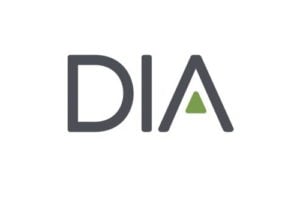Writing in the June 2023 edition of DIA’s Global Forum magazine, Angelika Joos of MSD and Susanne Ausborn Roche consider some of the key takeaways from a workshop on regulatory reliance at DIA Europe 2023 which brought together international representatives from both industry and regulatory bodies.
Reliance* is considered the hallmark of a modern, efficient regulatory framework and a 21st century regulatory tool. (See Annex 10 page 243 of this WHO report.) Yet many roadblocks still need to be removed to bring reliance into action around the world and at the same time streamline the different pathways established over the last 20 years. Senior regulatory experts representing health authorities from all around the world joined industry representatives at a DIA Europe 2023-affiliated workshop to discuss more effective and efficient information sharing to enable risk-based reliance reviews, the interpretation of product sameness, and the impact of the diverging country-specific requirements which are not necessarily justified from the point of view of modern regulatory science. This open dialogue and experience sharing increased the mutual understanding between different stakeholders and identified concrete next steps to bring reliance into more widespread practice.
*Reliance is the act whereby the regulatory authority in one jurisdiction takes into account and gives significant weight to assessments performed by another regulatory authority or trusted institution, or to any other authoritative information, in reaching its own decision. The relying authority remains independent, responsible, and accountable for the decisions taken, even when it relies on the decisions, assessments, and information of others.
Benchmarking data collected annually by CIRS shows how submission delays and long assessment timelines are delaying the availability of new medicines for patients around the globe. They demonstrate that reliance can effectively be used to focus resources and speed up approval timelines while strengthening regulatory systems. The EU network system and the EMA provide a practical example of practicing reliance for more than 25 years. In other regions, national regulatory agencies such as the Saudi FDA established reliance pathways several years ago and continuously update pertinent regulations based on stakeholders’ experience and feedback. Industry is increasingly leveraging existing reliance pathways and is exploring pilots to simplify global filings and accelerate approvals.
Continuous Dialogue is Key
These insights into different stakeholder perspectives set the baseline for identifying concrete next steps. There are still many different opinions and approaches concerning which information should be provided to other regulators (e.g., assessment reports, Q&A documents, full clinical data, approval letters, Certificates of Pharmaceutical Product [CPP], etc.) to enable reliance and who should provide them. It became obvious that this will be key to clarifying terminology and mapping the documentation currently requested by different regulators. It will be important to resist the temptation to request additional documentation or to follow a “checklist,” but to instead be very clear and thoughtful about the purpose of each document or additional piece of information requested. Continuous dialogue is key: on the one hand, through product-specific discussions between companies and regulators, for example, in submission meetings; and on the other, more frequent workshops discussing case studies and sharing experiences to optimize existing pathways or establish new reliance guidelines.



